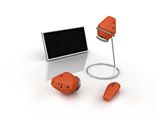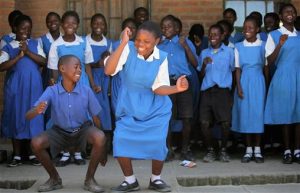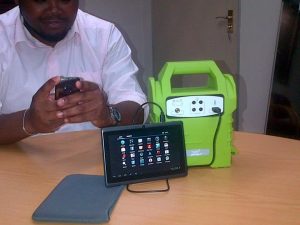| We have partnered with South African Airways, OkuhlazaEnergy and the Nelson Mandela foundation to reach out to more people in South Africa distribute 2 million solar lanterns to students in Africa in our project called Solar Empowered school. |
| Problem:
Worldwide, approximately 1.6 billion people have no access to electricity and another 1 billion have extremely unreliable access. Without access to electricity, the poor depend on kerosene lanterns and battery-powered flashlights for light. They can’t break the cycle of poverty because they can’t take advantage of the myriad productive uses of energy. Access to energy is essential for a family’s economic livelihood, health, safety, educational achievement, and quality of life. In South Africa about 2, 5-million households do not have electricity. Over four million households do not cook with electricity and two million households rely on candles for lighting,” according to the study by Citizens United for Renewable Energies and Sustainability (CURES). This is in a country that has over 36,000MW of installed power generation capacity for it 50 million citizens; its own nuclear power plant and one of the largest electricity utilities in the world. Today’s young people face an opportunity divide – a gap between those who have the access, skills and opportunities to be successful and those who do not. Closing this opportunity divide is one of the most important actions we can all take to secure the future of our youth and the future of our global economy. Most Students in Africa are currently unable to study in the evenings; lack of lighting in houses makes ‘homework’ impossible and students have to leave school well before dusk to avoid lion, hyena or elephant encounters on the way home. Lighting would mean boarding houses could be established and pupils would have the opportunity to study later, improving their chances of passing Exams. There are also possibilities for adults to access facilities, such as computer and internet, at the weekends. This project has the potential to provide a blueprint for replicating renewable energy access in schools across the continent, improving access to education; crucial for assisting people to lift themselves out of poverty. Kerosene lanterns are dangerous, dirty, and dim. Worse, they are very expensive to operate. And yet, in most markets, kerosene lanterns are the preferred lighting system. For a person with little or no savings, no access to formal credit, and low and uncertain income, the selection of kerosene lighting is eminently rational. Kerosene lighting has a low initial purchase price and offers a flexible pattern of expenditures over time. The kerosene light – with its high operating costs, its many dangers to health and home, its poor quality light and noxious fumes – has been the best choice available. We are working with 47 primary schools and seven high schools with a total student enrollment of 64,286. Most of these children and many of their teachers have no electricity and must do their schoolwork by lighting candles, firewood or kerosene. The Cost R580 each and we ware looking for donation from private and corporate reach out to more people in Africa.
About AFSEA African Sustainable Energy Association ( AFSEA ) represents and actively promotes Renewable Energy Solutions on our continent. AFSEA works closely with the private sector, local organizations and support institutions to achieve sustainable impacts that last long. www.afsea.org |














